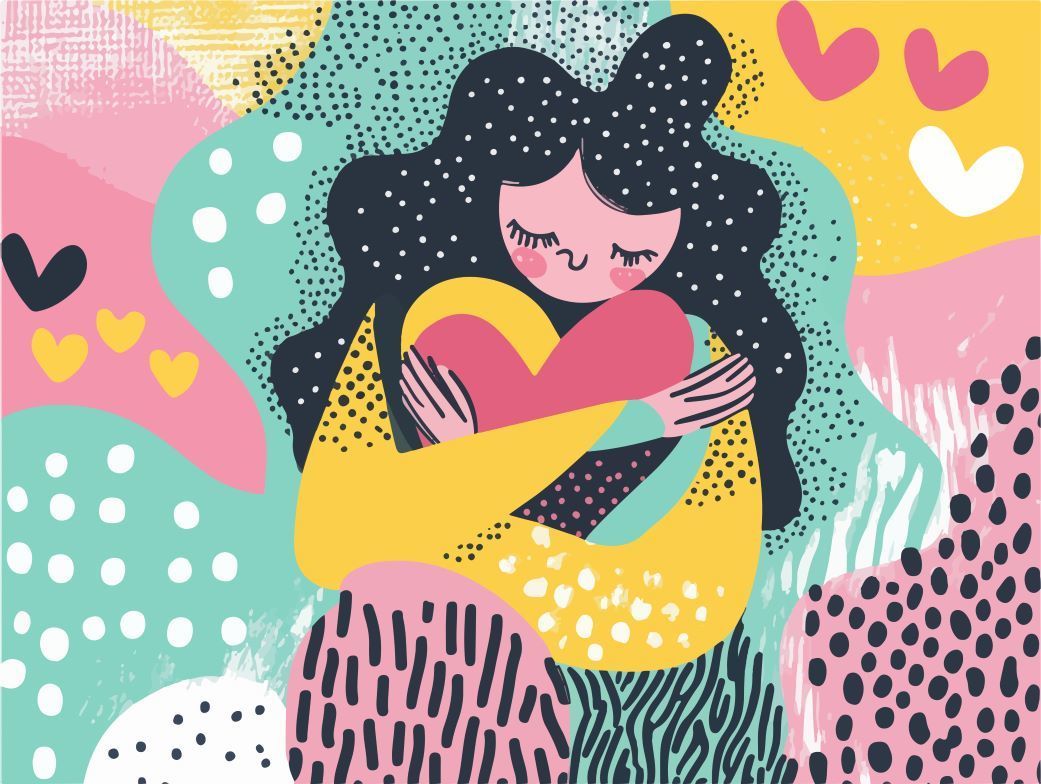
Updated February 2026
This article reflects how we work with trauma, anxiety, OCD, and self-esteem at Smart Therapy™.
If you feel stuck in long-standing emotional or relationship patterns, this guide offers deeper understanding and a path toward meaningful change.
In This Guide, We’ll Explore:
• What the Emotional Orphan Archetype Is
• Abandonment and emotional deprivation wounds
• How these wounds show up in adult life
• Emotional orphan patterns in anxiety, OCD, and self-esteem
• How therapy helps heal these patterns
Some wounds aren’t marked by what happened, but by what never did.
No one came. No one noticed. You needed to be held, soothed, seen. But instead, there was absence. Maybe someone was physically there but emotionally unreachable. Maybe you had to grow up too soon. Maybe you stopped asking to be comforted because it hurt too much when the comfort never came.
This is the terrain of the emotional orphan archetype: a deep imprint in the psyche shaped by early experiences of abandonment, neglect, or emotional deprivation. And it is more common than we often recognize.
Many people who carry this archetype don’t even realize they do. They may look highly competent, independent, even caretaking toward others; but underneath, there is a quiet ache: I’m alone in this. I can’t need too much. No one is coming.
The Emotional Deprivation, Abandonment, and Self-Sacrifice Schemas
In Schema Therapy, several core schemas often show up in people carrying emotional orphan wounding:
-
The Emotional Deprivation Schema: the deep belief that your needs for love, nurturance, and attunement will never be adequately met. This schema forms when those needs were consistently unmet in childhood, either due to emotional neglect, misattunement, or caregivers who were unavailable or overwhelmed themselves.
-
The Abandonment/Instability Schema: the fear that love or security will inevitably disappear. This can stem from inconsistent caregiving, loss, or relational trauma where the people you depended on were unreliable, unsafe, or emotionally unpredictable.
-
The Subjugation (Self-Sacrifice) Schema: the belief that your needs, feelings, or preferences must be suppressed in order to maintain connection or avoid conflict. This often develops when expressing your needs as a child led to rejection, punishment, or emotional withdrawal. You may have learned to keep the peace by staying small.
All three schemas distort your relationship with emotional needs. You may long for closeness and simultaneously pull away. You may crave support, but feel ashamed for needing it. You may give to others endlessly while quietly abandoning yourself.
This push-pull can create lifelong patterns of emotional isolation, over-functioning, and self-neglect disguised as strength.
The Emotional Orphan Archetype in Media: A Mirror for the Inner Landscape
Stories often reveal what we cannot yet name in ourselves. The orphan archetype appears throughout literature and film, mirroring back to us the pain and resilience of those who’ve been emotionally or literally left behind:
-
Anne (Anne of Green Gables): A literal orphan, Anne longs for belonging, love, and recognition. Her imagination becomes her survival strategy. Though chronically misunderstood, she protects her hope and fierce spirit until she is finally met with kindness and care.
-
Beth Harmon (The Queen’s Gambit): Also a literal orphan, Beth copes with grief, loneliness, and instability through intellect and achievement. Her brilliance becomes a shield against the raw vulnerability she rarely lets anyone see.
-
Will Hunting (Good Will Hunting): Will uses sarcasm, violence, and emotional avoidance to protect himself from intimacy. His genius conceals deep-seated pain from childhood abuse and abandonment. Healing begins not with insight alone, but when he is finally seen, held, and not pushed away.
-
Tommy Shelby (Peaky Blinders): Tommy is hardened, controlled, and emotionally detached; a survival response to childhood loss and the trauma of war. His orphan wound shows up in his mistrust, his lone-wolf persona, and the way he distances himself from tenderness.
-
Cait (The Quiet Girl): A quiet and observant child, Cait survives emotional neglect and silence by becoming small and self-sufficient. When she is temporarily placed with distant relatives who show her warmth and care, we witness how even subtle attunement begins to awaken her sense of worth.
Each of these characters carries a version of the orphan story. What they long for isn’t just resolution of trauma, but restoration of connection.
How the Emotional Orphan Wound Shows Up in Adults
Long-standing emotional deprivation and abandonment wounds often sit beneath chronic anxiety, intrusive thoughts, people-pleasing, relationship distress, and deep struggles with self-worth. Many people who seek therapy for anxiety, OCD, or self-esteem challenges are also carrying unrecognized emotional orphan patterns beneath the surface — even when those struggles seem unrelated at first.
The orphan archetype doesn’t only belong to childhood. When left unhealed, it carries forward into adult relationships, inner narratives, and self-worth.
You may:
-
Feel shame around needing others, or feel weak when you ask for help
-
Take care of others but resist being taken care of
-
Feel like a burden, or assume others will leave if you show too much emotion
-
Struggle with self-nurturing or believing you’re worth gentle treatment
-
Overachieve as a way to prove worth and avoid emotional pain
-
Experience longings for connection but remain emotionally guarded
Underneath it all, there is often a quiet grief: Why wasn’t I enough to be cared for?
Therapy can become the place where this grief is welcomed: not pathologized, dismissed, or minimized. Where the orphaned parts of you are invited out of hiding.
Healing the Orphan Wound: A Nurturing, Integrative Approach
If this article feels like it’s describing you, you’re not alone.
Smart Therapy™ offers online therapy across Ontario specializing in trauma, anxiety, OCD, and self-esteem.
Healing the emotional orphan experience isn’t about “getting over it,” it’s about creating the kind of relational and emotional holding that was missing. This is slow, deep work. And it can be profoundly transformative.
Here are some of the approaches we use in our trauma therapy work with clients navigating these themes:
Schema Therapy
Schema Therapy identifies the underlying patterns (like emotional deprivation, abandonment, or subjugation) that continue to shape how you see yourself, others, and your needs. We explore your history not just to understand it, but to help you shift out of the limiting beliefs and coping modes that formed around it. One key element of healing in schema therapy is limited reparenting; offering emotional attunement and responsiveness that may have been missing early in life.
Inner Child Work & Corrective Reparenting
The emotional orphan is often a child part, frozen in time. Through inner child work, we reconnect with this part of you; often through either imagery, dialogue, hypnotherapy, or somatic awareness. We don’t just talk about the pain, we meet the part of you that felt it. You learn how to show up for yourself in a new way: as a consistent, warm inner caregiver who listens, nurtures, and stays.
Emotion-Focused Therapy (EFT)
EFT helps you access, process, and transform the emotional patterns rooted in early attachment wounds. Instead of avoiding or bypassing emotion, we slow down and go toward it; safely, gently, and with support. This builds emotional resilience and the ability to connect to your own needs without shame.
Psychodynamic Therapy
Psychodynamic work explores the unconscious relational templates that formed in childhood and continue to play out in adult life. Together, we trace the emotional thread from your past to your present, looking at how early experiences shaped your sense of self, your defenses, and your relational patterns.
Dream Work
Dreams often carry messages from the orphaned self. The abandoned house, the child alone, the lost voice; these dream images are symbols waiting to be heard. In our work together, dreams become portals to parts of you that may not speak in words, but still long to be known.
Jungian Approaches & Archetypal Work
The orphan isn’t just a wound, it is an archetype, a mythic energy that holds both pain and potential. In Jungian work, we explore not only what happened to you, but what your authentic self is trying to express through your struggle. The orphan archetype, when engaged consciously, can lead to profound resilience, authenticity, and transformation.
You Are Not Alone
One of the greatest injuries of the emotional orphan experience is the belief that you are alone in it. That no one could possibly understand what it’s like to be unheld.
But you don’t have to stay there. Therapy offers not only insight but relationship, attunement, and presence. It offers a space to re-learn trust, to build inner safety, and to experience what it means to be met with tenderness instead of abandonment.
At Smart Therapy™, I offer depth therapy as a trauma therapist that honors the complexity of your story and the wisdom of your psyche. Whether through talk, imagery, dream, or emotion, we walk at the pace your nervous system can hold. Together, we begin to rewrite the orphan narrative- not by erasing the past, but by reclaiming the parts of you that never stopped longing for love.
Frequently Asked Questions
Can abandonment wounds cause anxiety and intrusive thoughts?
Yes. Long-standing abandonment and emotional deprivation wounds can contribute to chronic anxiety, hypervigilance, and intrusive thoughts. When early relationships did not feel safe or reliable, the nervous system can remain in a state of alertness, scanning for danger, rejection, or loss. This can later show up as persistent worry, rumination, or distressing thoughts that feel difficult to turn off.
Many clients who experience these patterns also explore our Trauma Therapy, Anxiety Therapy, & OCD Therapy pages for deeper support.
How does emotional deprivation affect adult relationships?
Emotional deprivation can shape how you relate to closeness, trust, and vulnerability in adulthood. You may long for connection but feel unsafe depending on others, struggle to express your needs, fear being "not enough," “too much,” or over-give in relationships while minimizing yourself. These patterns are survival responses formed when emotional needs were not consistently met earlier in life.
Is the emotional orphan archetype related to childhood trauma?
Yes. The emotional orphan archetype often reflects early experiences of neglect, emotional unavailability, abandonment, loss, or inconsistent caregiving. Even when caregivers were physically present, a lack of emotional attunement can leave lasting attachment wounds that continue to shape your inner world, relationships, and sense of self into adulthood.
How does therapy help heal abandonment and emotional deprivation wounds?
Therapy offers a consistent, attuned, and emotionally safe relationship where these wounds can be gently explored and healed. Through insight-driven, trauma-informed approaches, therapy helps you understand your patterns, process unmet emotional needs, strengthen self-compassion, and develop new ways of relating to yourself and others with greater safety and trust.
Do you offer online therapy across Ontario?
Yes. Smart Therapy™ offers secure online therapy to adults across Ontario, including but not limited to Toronto, Oakville, Aurora, Burlington, Ottawa, London, Kitchener, and the Waterloo Region.
Ready to Begin?
I offer virtual therapy across Ontario, specializing in trauma, early attachment wounds, and inner healing. If the orphan archetype speaks to something in you (something you’ve always known but never named), I’d be honoured to support your journey home to yourself.
Reach out today to book a consultation or learn more about this work.
____________________________________
Meet Rebecca Steele: Registered Social Worker, Psychotherapist (MA, MSW, RSW, CCC)
Rebecca is a Waterloo-based trauma therapist offering virtual counselling across Ontario. With over a decade of experience, she helps adults navigate trauma, anxiety, OCD, and self-esteem. Her insight-driven depth therapy approach supports self-understanding, emotional healing, and lasting change. Book an appointment or learn more about her online therapy services.
Located outside Ontario? You can explore Rebecca’s coaching and consulting offerings here.





